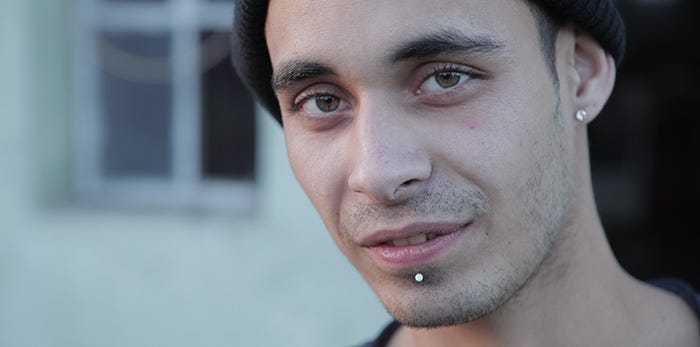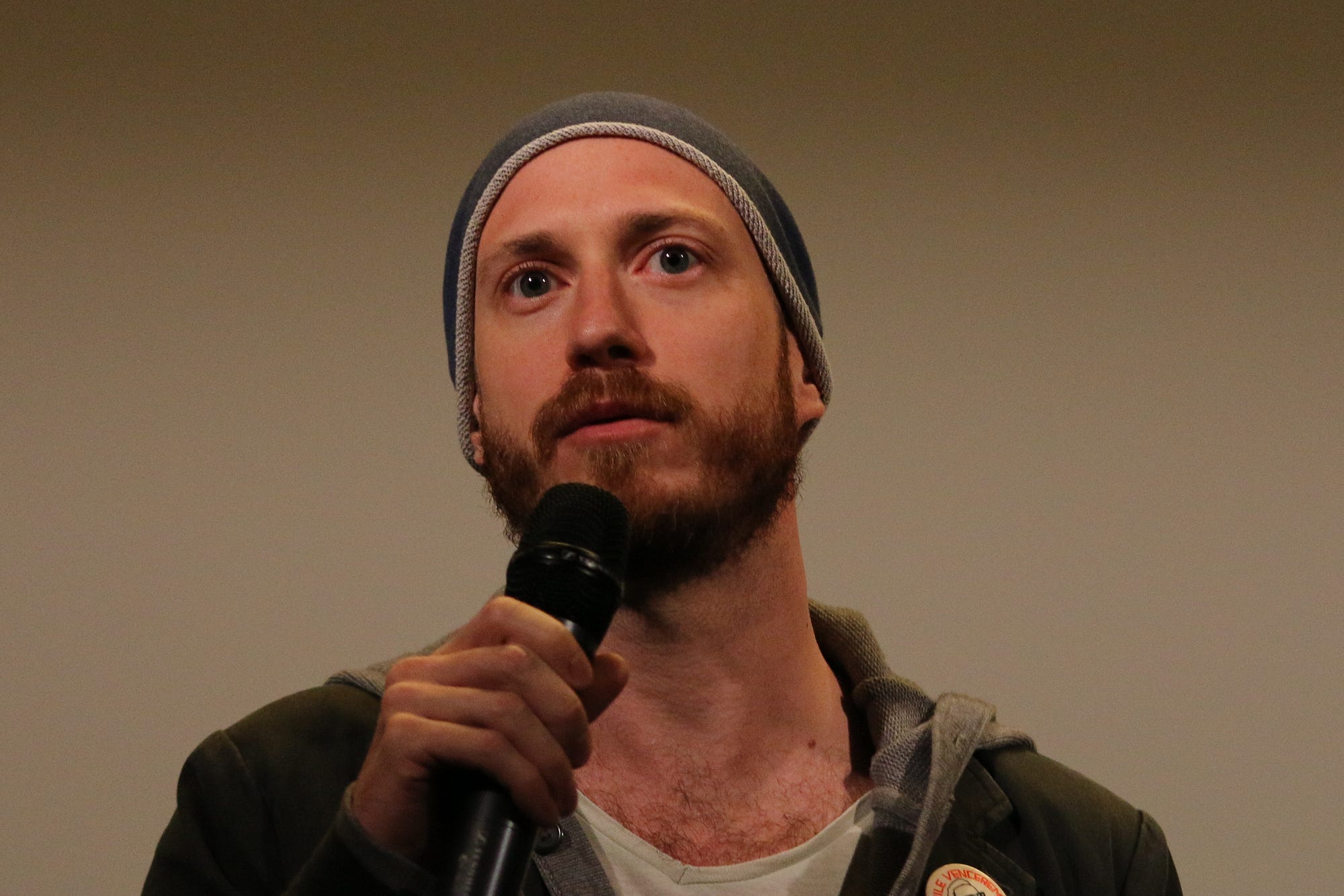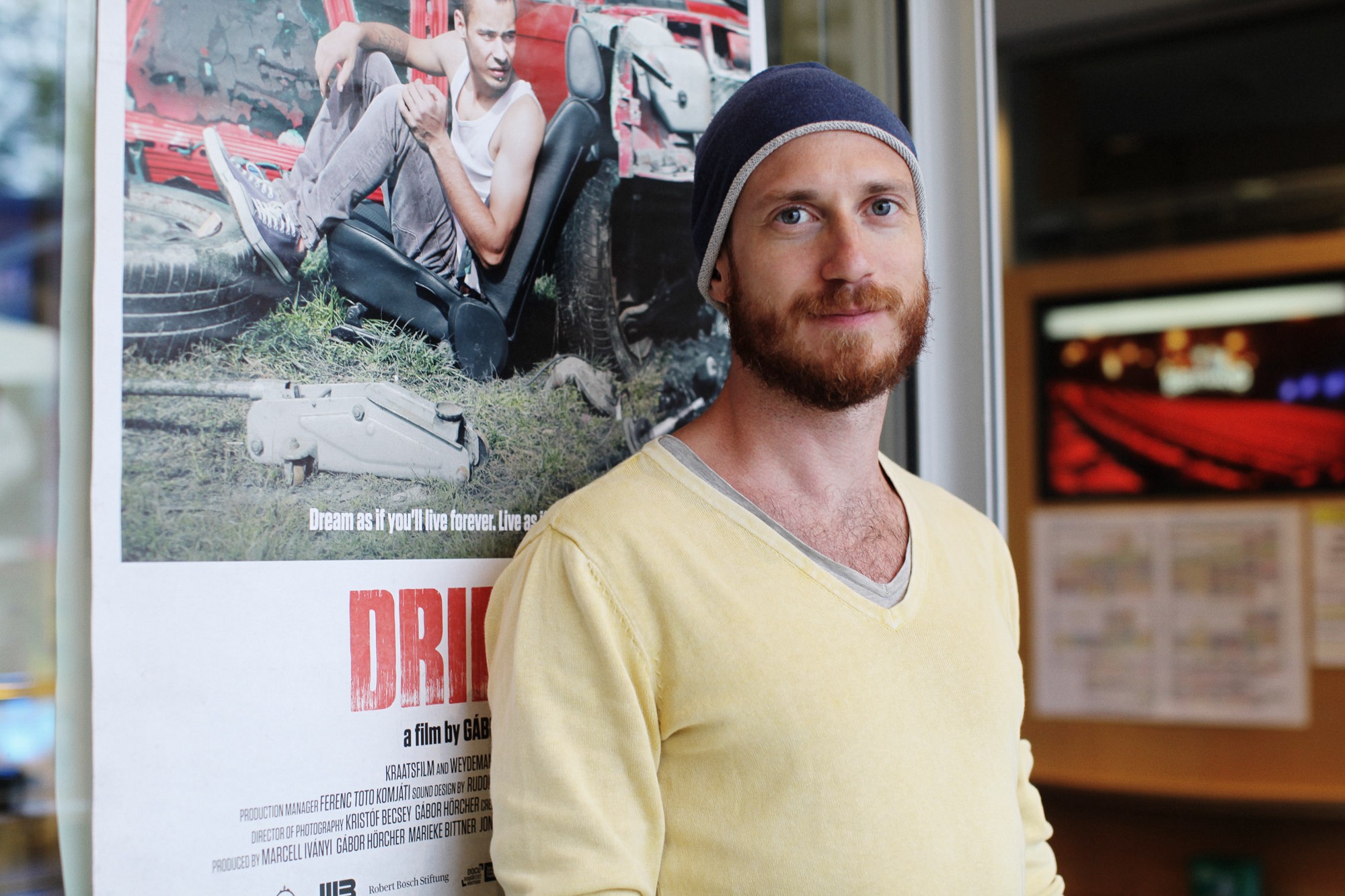As part of our New European Documentary series we are delighted to introduce a new series of interviews held by Nick Mastrini. With passion and flair, Nick introduce the films and provide us with a great insight into the work and challenges of a new generation of European film makers.
Gábor Hörcher is a film-maker from Budapest. His documentary ‘Drifter’ follows Ricsi, a rebellious teenager in rural Hungary who dreams of success while dealing with the reality of his family and school life. After seeing his film at Picturehouse Central, I interviewed Gábor, learning about his career, the making of ‘Drifter’, and his other projects.
Could you tell me about your career leading up to Drifter?
I started film-making quite late. I started studying psychology, and after that I graduated from Law. I went on to travel to Asia — I was living in Cambodia, teaching there in the university in 2007.
The reason I came back [to Budapest] was that I really wanted to get into films. I didn’t get into film school — I was too old to be accepted so I freestyled a lot. I went to courses in one of the schools, sat in and listened. That was great.
They took me in to one of the Masters degrees, so I spent two years making mainly short fiction films. By 2010, I wanted to try something new, to just experiment and see what’s up with documentaries. I was brainstorming with my friend about a couple of ideas — some mine, some his.
We went down to the countryside [in Hungary] and met Ricsi six years ago. We took a camera, immediately started recording, and Ricsi and his friends liked it. We shot for two days and I edited it together. I started to pitch the project; a British foundation saw the trailer and wanted to be part of it.
Drifter took almost five years to be completed. Was most of that time spent shooting, or in post-production or distribution?
It began smoothly — you have to know that there was no financing in Hungary at that point, so there was no way to finance a movie, let alone a documentary, especially if you’re a newcomer and nobody knows your name.
So in that sense, it went really well. We attracted foreign attention, and after one year we won the Robert Bosch (2011 Documentary) co-production prize. That kicked off the project and in the next three years we had no financial problems. We did principal shooting without any concerns.

From the very beginning I knew I wanted to be there all the time; I did not want interviews, finding out what happened last week, reenactments, or any stuff like that. I stayed there sometimes a full week, sleeping at their place — and I did that for about three years.
While we were preparing to make the short, we were also shooting additional stuff for the documentary, and there were days when we were shooting for both films.
Then the news came that Ricsi’s girlfriend was pregnant, so it was clear that we needed to shoot everything [in Drifter] around that. In the meantime we were editing and making the short film, doing all three things together for a year. By the time we finished the short film, we finished the documentary as well.
Gábor’s short film, titled ‘Ricsi’, can be watched below.
The cinematography of Drifter is very well-composed, with the kind of intimate close-ups you would expect to see in a fictional film. How did you manage this while maintaining the realism of your documentary?
It was a very small crew: first it was me and my friend, then it was me alone, then it was me and a DP — never more than two people. We were university students, so we weren’t a professional-looking team.
The fact that I was constantly there built a lot of trust. [Ricsi and his friends and family] just lost interest in the camera after a while, they didn’t care any more.
Since we became friends, they were very natural in front of the camera, nobody was acting. Emotional parts, like when Ricsi’s angry with his Dad, or he’s crying on the phone, or the party before his son’s birth, aren’t facilitated — this is trust built over the years.
We did some facilitation here and there, but those were usually not the emotional parts, but to help the narrative arc of the film and facilitate the turning points.
How does your short film Ricsi differ from your feature documentary, in both style and content?
What was a big difference — the documentary is more about Ricsi’s relationship with his father, and I deliberately put a bigger emphasis on his special relationship with his mother.
Ricsi was perfect, he acted like a pro. He is really naturally talented — of course, we did a lot of preparation and the documentary was a huge schooling for him and us to get to know each other. It went really well.

How did you establish your production company KraatsFilm, and how did it help you produce Drifter?
I met with Marcel Iványi, my colleague, right after I came home from Asia. We started working together and it took us 5 or 6 months to decide to build a company together, and we established KraatsFilm in 2008.
It’s a small company, it’s only two of us, and we produce a lot of different stuff, including contemporary dance theatre and installations, and our own stuff, like my short films and documentary.
Drifter was, for me, a complex project because I was my own producer. Marcel was helping me a lot and of course we had the German co-producers. But we did the distribution ourselves, so it was a huge job.
What do you plan to work on in the future?
I have two or three projects which I’m starting off, and all of them are something in-between fiction and documentary. I’m still experimenting, using two genres at once, or starting off with documentary research and using it for a fiction script.
I was just taken to the CPH:LAB at the Copenhagen Documentary Film Festival, which is a project development and research workshop. We’re doing a short film there.
Gábor says he would love to come to London with a future project — and with EUNIC London and Open City Docs continuing to host these events, there is no doubt he will find a platform to showcase his work.
 Nick Mastrini writes for SAVAGE Magazine and Within and Without.
Nick Mastrini writes for SAVAGE Magazine and Within and Without.
Find Nick on Twitter
This article was originally posted on Within and Without.
‘Drifter’ was screened as part of ‘New European Documentary’, a monthly series of screenings presented by EUNIC London and Open City Docs, and initiated by Czech Centre London.
The next documentary to screen at Picturehouse Central will be Lithuanian film ‘Barzakh’, which depicts the search for a man in a Chechen city.
See it on February 24th at 18:30. Tickets from £5 can be found here.


